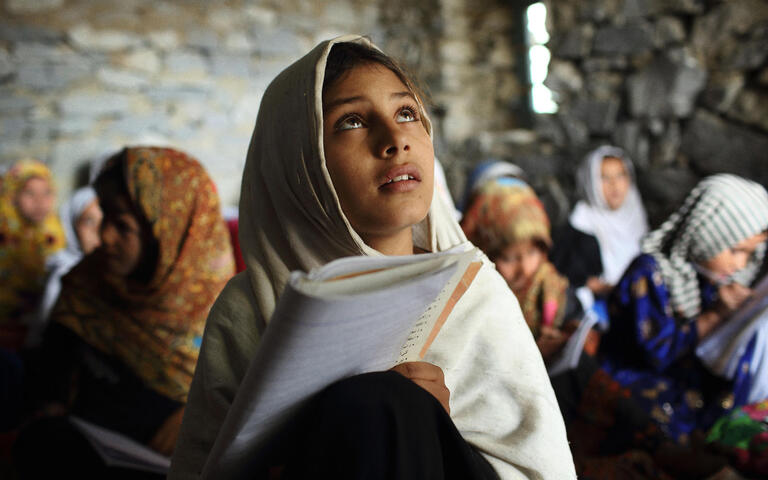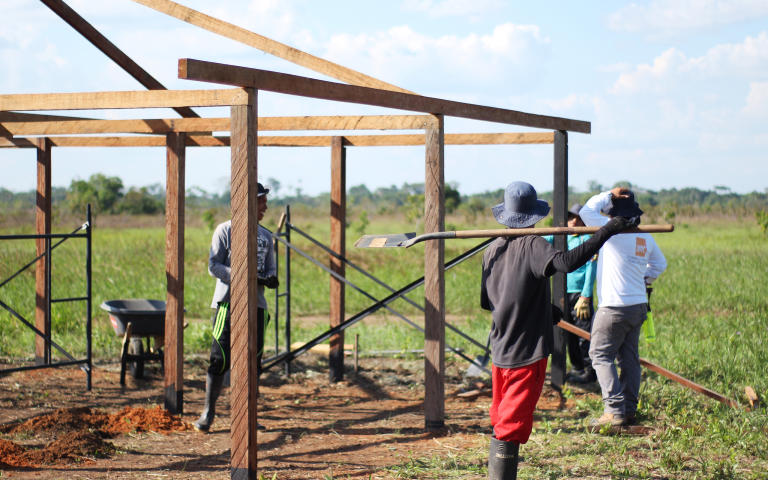
People reached in 2022
A total of
2,157,025
people benefitted from our livelihoods and food security work
Food security rests on four key pillars:
- Availability of diverse and nutritious foods.
- Physical, economic and social access to nutritious foods.
- Adequate utilisation of food items consumed to maintain a healthy nutritional wellbeing.
- Strengthening stability of the pillars and systems people rely on over time.
During conflicts, disasters and displacement, food production and market systems face potential collapse. People lose their assets and their ability to earn a living is disrupted.
Our expertise in livelihoods and food security
We provide food assistance to prevent loss of life and to contribute to the rehabilitation of local food and market systems. We promote livelihood strategies that protect, recover and strengthen individuals' and households' abilities to earn a living. To prevent repeated displacement, we support engagement in social and economic opportunities that reinforce the adaptive capacity of systems, individuals, families and communities affected by displacement.
We follow the UN Food and Agricultural Organization’s (FAO) definition of food security:
"Food security exists when all people, at all times, have physical, social and economic access to sufficient, safe and nutritious food which meets their dietary needs and food preferences for an active and healthy life."
In both emergencies and protracted crises, we analyse the livelihood vulnerability context and situation. This analysis enables us to better understand vulnerability, needs and preferences, and is key to the development of holistic integrated responses that contribute to durable solutions.
Livelihood interventions must be undertaken in combination with other sectors.
Our livelihoods and food security work focuses on the following thematic areas:
- Household and livelihood vulnerability analysis
- Emergency food assistance
- Asset creation (creating local assets that reduce food insecurity and build livelihood opportunities)
- School meals and gardening
- Nutritious food production systems
- Integrated natural resource management
- Food infrastructure systems
- Employment and income generation and/or diversification
- Credit and finance facilitation
- Initial business and value chain development
- Integrated risk reduction
We work in three areas to enable livelihoods that are in support of durable solutions:
- Meeting basic needs/livelihoods provisioning
Protect and stabilise affected households against further effects of risks and crisis by ensuring access to adequate and appropriate nutritious food. Provide other essential livelihood needs required for survival. - Livelihoods protection
Support affected households and communities in protecting household and livelihood systems, avert erosion of productive assets, and support households and communities in restoring productive assets. - Livelihoods promotion
Enhance household and community capacity to manage risks and shocks and to leverage their adaptive, financial and human capabilities. Invest in lasting solutions for improved economic and social wellbeing and dignity.
The Global Livelihoods and Food Security (LFS) strategy aims to improve NRC’s ability to reach and provide sufficient, appropriate and holistic food and livelihood assistance to people affected by displacement. We prioritise the most vulnerable in the rural, urban and camp-based contexts that NRC operates in.
This strategy provides an overview of how NRC can ensure a greater likelihood of success in securing people’s ability to access sufficient, safe and nutritious food, achieve self-sufficiency and participate in economic activities.













.jpg?width=768&height=432)